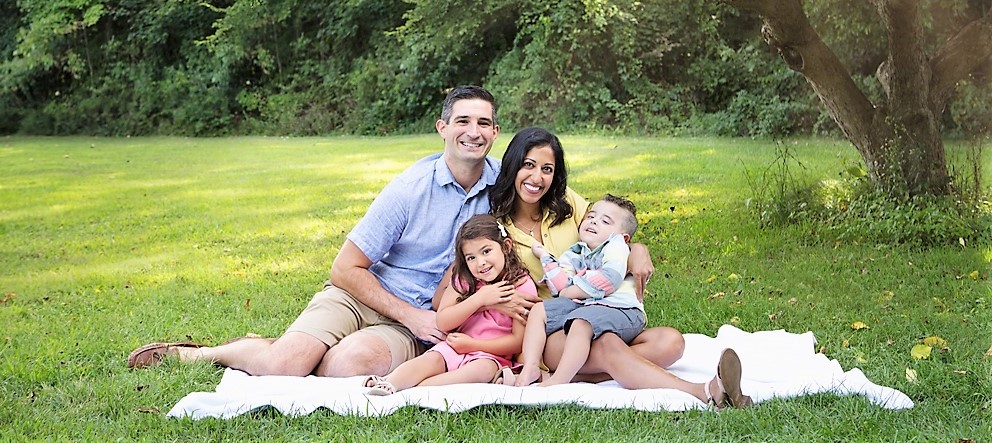What is the CHC Difference?
What Makes Center for Hospice Care Different?

With over 44 years and more than 45,000 patients served, no other hospice provider comes even close to the level of experience and proficiency as Center of Hospice Care.


Esther’s House & The Ernestine M. Raclin House
There are only seven freestanding hospice inpatient units in Indiana. Two of them, the Ernestine M. Raclin House and Esther’s House, are owned and operated by CHC. Conveniently located in Mishawaka and Elkhart respectively, last year nearly 300 patients had their uncontrolled acute pain and other symptoms managed at our units. The Ernestine M. Raclin House has 12 private patient rooms all facing the beautiful St. Joseph River while Esther’s House has seven beds situated next to serene nature trails.
Center for Hospice Care (CHC) has created a cutting-edge program that is unique to us. HeartWize is designed to offer patients with advanced heart disease an option for optimal management of their care. When patients with maximally treated heart disease would like to avoid further re-hospitalizations and are not candidates for further surgical procedures, the HeartWize program can assist the physician, patient, and family to manage symptoms of heart disease at home.
The goals of HeartWize are to:
- Improve the quality of life and help the patient accomplish important goals
- Increase the ability of the patient to cope with the illness
- Increase family caregiver confidence and coping
- Closely monitor and manage symptoms to reduce episodes of crisis
- Reduce hospital admissions and Emergency Room visits
HeartWize helps patients meet these goals through:
- Regularly scheduled visits by staff with specialized training in cardiac evaluation and symptom management
- A cardiac medication kit is placed in the home
- Specialized protocols and treatment pathways designed for end-stage cardiac disease
- Patient education materials specifically designed for end-stage cardiac patients
- Use of emotional, spiritual, and complementary approaches to care as appropriate
BreatheEazy is an exclusive program of Center for Hospice Care that is designed to offer patients with chronic obstructive pulmonary disease (COPD) an option for optimal management of their care. When patients with maximally treated COPD would like to avoid further re-hospitalizations and are not candidates for further surgical procedures, the BreatheEazy program can assist the physician, patient, and family to manage symptoms of COPD at home.
The goals of the BreatheEazy program are to:
- Improve the quality of life and help the patient accomplish important goals
- Increase the ability of the patient to cope with the illness
- Increase family caregiver confidence and coping
- Closely monitor and manage symptoms to reduce episodes of crisis
- Reduce hospital admissions and Emergency Room visits
- Reduce emergency overnight phone calls to the physician
The BreatheEazy program helps patients meet these goals through:
- Regularly scheduled visits by staff with specialized training in COPD evaluation and symptom management
- A COPD medication kit is placed in the home
- Specialized protocols and treatment pathways designed for end-stage COPD
- Patient education materials specifically designed for end-stage COPD patients
- Use of emotional, spiritual, and complementary approaches to care as appropriate
DementiaCare
Alzheimer’s and Dementia patients often have special needs. Communication can often be a major issue at the end of life for these diseases. For instance, non-verbal indicators of pain require special training in order to recognize and interpret.
Center for Hospice Care (CHC) is currently investing in staff training for these issues. By the end of the year, CHC will have approximately 75 staff members who have completed and have been certified. We’re working with the Institute for Excellence in Memory Care.
97% Satisfaction Rating
Family/caregiver satisfaction surveys continue to remain extraordinarily high, which provides evidence of not only high-quality care but also the delivery of a holistic suite of caring services to meet a wide variety of individual patient family needs.
On Press Ganey surveys during 2020 the question “Generally speaking, did you have a positive experience with Center for Hospice Care” generated a “Yes” response 97% of the time. “Would you recommend Center for Hospice Care to others,” generated a “Yes” response 97% of the time. There were 1,119 responses to these two questions.

The goal of pediatric hospice care is to improve the quality of your child’s life. Studies have shown that having hospice care prolongs life expectancy as symptoms are better managed. Our Pediatric Team specializes in the care needs of children. At the time of referral, our team goes into action. Depending on the health care plan, a child may be eligible for concurrent care, which allows a child 20 years of age or younger to have hospice and curative treatment. We work with area children’s hospitals as well as out-of-service area hospitals such as Ascension’s Peyton Manning Children’s Hospital, Cleveland Clinic, and Chicago area hospitals. Find out more here: cfhcare.org/pediatrics.

The perinatal support team provides the best care for newborns that have a potentially life-limiting condition. A nurse will meet with you at the hospital and together will identify your goals and wishes for you and your baby. We want to support you and provide you with the confidence and tools you need to care for your little one.
+$22 million
Thanks to the generosity of a very giving community, we’ve been able to continue our founding promise of never turning anyone away due to the inability to pay. From 2017 – 2021 charity and other free services have totaled nearly $13 million in programming.

Center for Hospice Care is a Level 5 We Honor Veterans partner, which is the highest level attainable. Our entire staff and volunteers are trained on the special needs that veterans may have at end-of-life. Part of our care includes our Vet-to-Vet program where we pair veteran patient companion volunteers with veteran patients.


